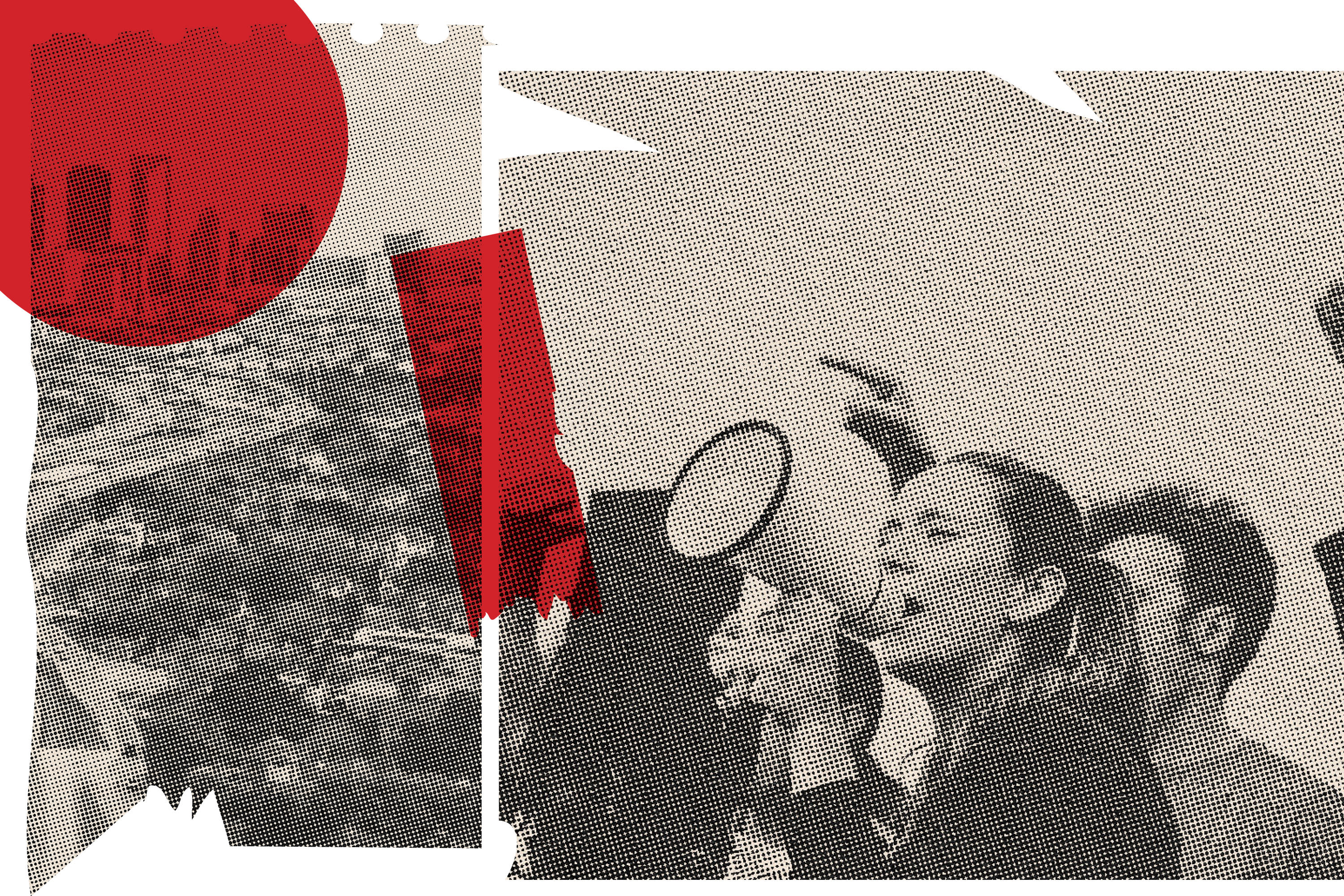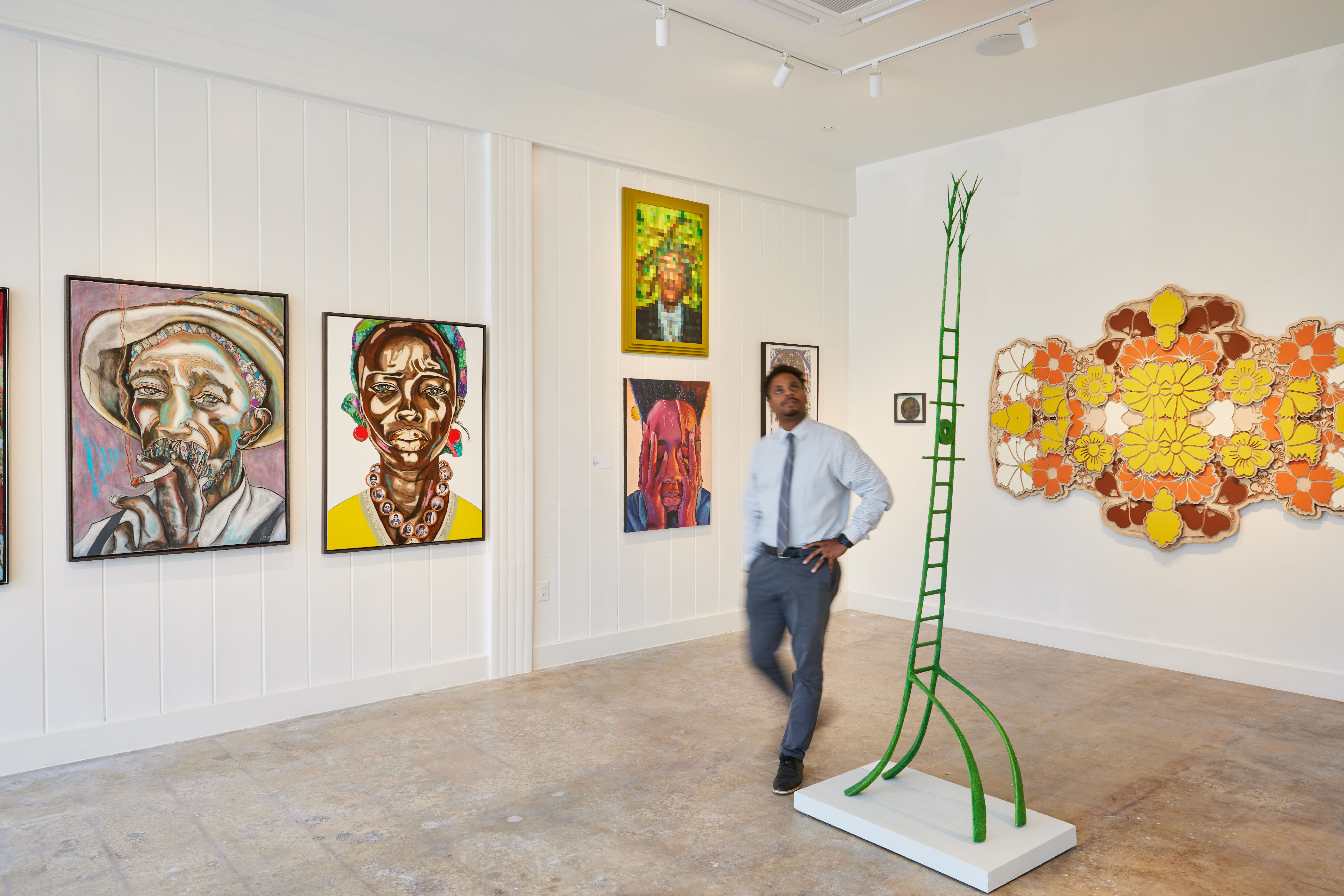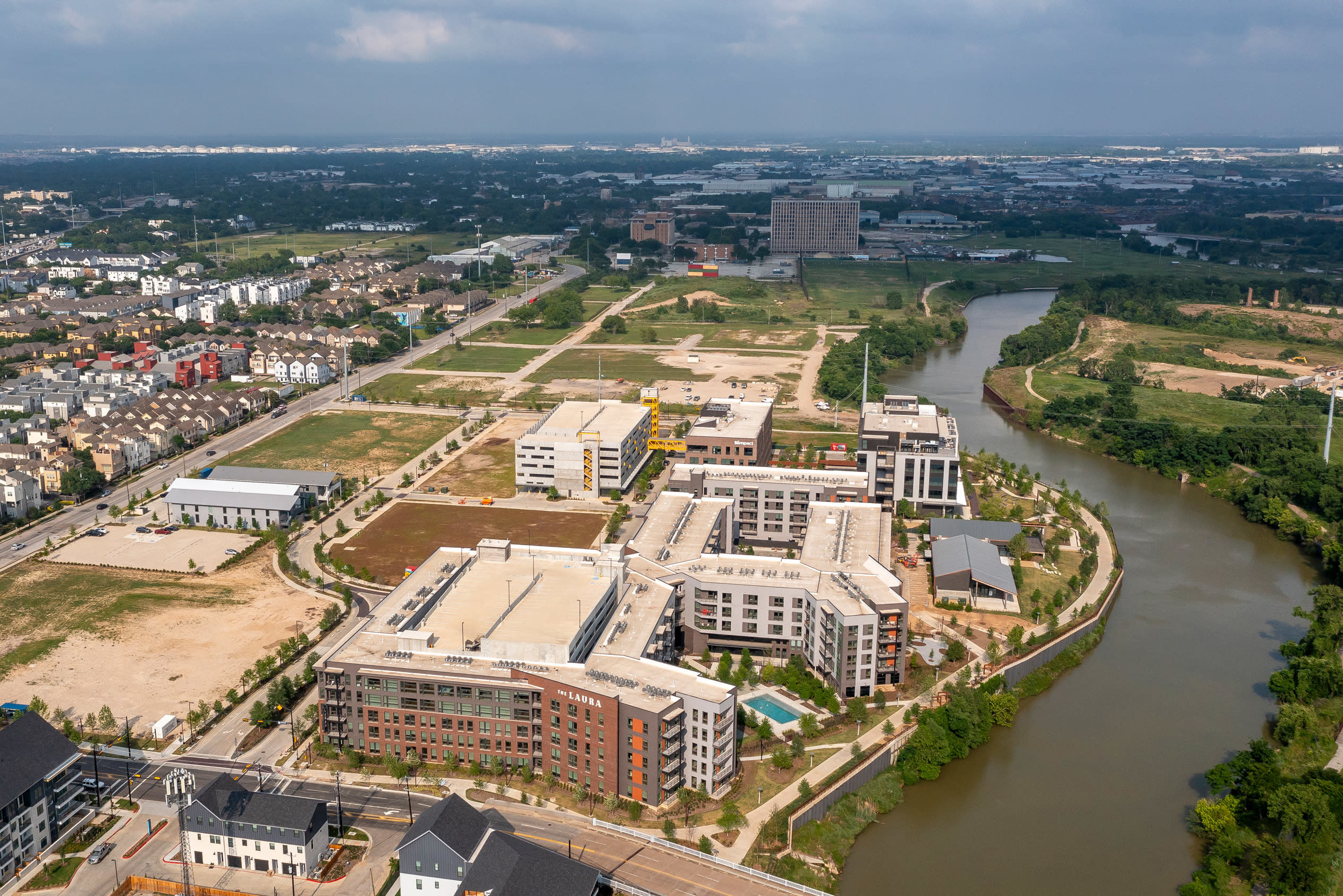After Fire, SHAPE’s Heart Continues to Beat in Third Ward

Image: Michael Starghill
Deloyd Parker still remembers the smell. On the evening of January 19, smoke rolled through SHAPE Community Center’s primary location in Third Ward, swallowing 56 years of photos, posters, and carefully archived memories. Firefighters cut holes in the roof to stop the flames; water and smoke did the rest. The shell of the two‑story building survived, but the estimated $500,000 in damage from the electrical fire erased classrooms, a computer lab, and the In‑SHAPE Café. Decades of Parker’s work seemed to sag under the weight of wet plaster and blown‑out wiring. He had spent half a century layering programs on top of protests—as he likes to say, “Activism has to have a second chapter.” Now those chapters were soaked in foam and ash, scattered across the warped hardwood floor.
If you drive down Live Oak Street and glance at the lot where SHAPE Community Center once stood in full form, you might not immediately see what was lost. But Parker sees it. Every scorched beam and empty room reminds him of the building’s second life—not just as a physical space, but as a vessel for generations of Black Houstonians who found purpose, direction, and community inside.
“There’s so many stories behind what happened in SHAPE,” Parker says. “You can point at every picture, and every picture tells a story.”
Parker’s own story starts long before the flames. In the summer of 1969, he turned a former grocery store on Live Oak into a living classroom. Back then, he slept on a cot behind the produce counter, flipped pancakes at dawn for neighborhood kids, and closed the night with Black-history lessons taped to bare brick walls. By 1971, the center had a charter, a board, and a name: Self‑Help for African People through Education.
By 1973, the space could no longer hold the crowds. A larger building sat vacant across the street, once a nightclub called the Casa Palace Ballroom. When beloved neighbor Gerthie May Green died, a friend sent Parker a $10,000 check in her honor. He put the money down on the ballroom, ripped out the bar, and began building what many would come to call “the United Nations of the hood.”

Image: Michael Starghill
Inside those walls, SHAPE hosted the city’s first seven‑night Kwanzaa celebration; launched freedom tours that took busloads of Third Ward teenagers across the South to trace Civil Rights battlegrounds; and turned a kitchen into the In‑SHAPE Café, an incubator for aspiring cooks to test recipes and earn a following before striking out on their own. When the Death Penalty Abolition Movement needed a home base to fight for the release of Clarence Brandley, they organized at SHAPE every week until Brandley walked free in 1990. When Winnie Mandela visited Houston after South Africa’s first democratic election, she spoke from SHAPE’s stage.
“My mother and father were activists,” Parker says. “I’ve always spoken out against injustice, but that came about as a result of recognizing what was happening to us. Activism void a program doesn’t work. What happens after you finish speaking up? SHAPE became a program of my political action.”
And yet SHAPE was never just about high-profile moments or historic firsts. It was, and remains, a daily haven where the smallest gestures add up to lives changed. Elders gathered weekly at the Institute of Wisdom, swapping stories and advice over hot lunches cooked by Parker himself. Once a month, people experiencing homelessness could drop in for a shower, clean clothes, and a haircut, a gentle way to restore dignity. Cocaine Anonymous meetings helped many stay clean. Families brought children to learn computer skills, martial arts, and robotics.
The roster of programs kept growing because the needs never stopped. Parker and a core of volunteers ferried kids from school each afternoon, fed them, then split them into capoeira classes, computer labs, and Black-history workshops. Summers meant full‑day care—7am to 6pm—capped by the weeklong Freedom Tour, when two charter buses filled with kids traced the arc of the Civil Rights Movement.
“About a week and a half before school opens, we travel from Houston to Selma, Jackson, Mississippi, Montgomery, Alabama—all over the South. We learn about the march across the Edmund Pettus Bridge, where Bloody Sunday took place and John Lewis was beaten because he was marching from Selma to Montgomery to protest for the right to vote. We travel seven days with about 45 children,” Parker says.
The fire didn’t end the mission, but definitely scattered it. Parker has had to furlough most of the youth‑program staff; without a licensed childcare space, he couldn’t keep them on payroll. Only one instructor remains, helping convert SHAPE’s other building—a former warehouse a few doors down—into a code‑compliant learning center. They’ve replaced exit lights and added new alarms. State inspectors could sign off by midsummer. The larger rebuild will take longer: almost a year to gut, shore up, and rewire the burned structure so children can return to their original classrooms.

Image: Michael Starghill
In the meantime, Parker refuses to let SHAPE’s heartbeat slow. Every Thursday, the elders’ Institute of Wisdom still meets, the age range stretching from 65 to 104. They circle up, pass a microphone, and trade lessons; afterward, they eat. The meal used to come from the In‑SHAPE Café, but these days it’s whatever Parker can coax from an air fryer, supplemented by donated trays of beans, rice, and chicken. “We have to be creative,” Parker laughs. “Poor people are the most creative people in the world, because they can’t buy what they want—they have to create what they want.”
Community support has also arrived in surprising waves. The youth group of Jack and Jill of America staged a fundraiser and donated $7,300. US Rep. Al Green persuaded the Port of Houston to cut a $10,000 check. A Catholic nursing school invited Parker to speak; a staffer quietly handed him a $1,600 check on the way out. Members of Mount Zion Missionary Baptist Church voted to contribute $10,000 in honor of the late Rev. William Lawson, whose call back in 1969 first urged Parker to take over that abandoned grocery store. Amazon boxes sent from supporters have delivered exit lights, office supplies, and children’s books. One neighbor simply shows up each Thursday with a pot of pinto beans large enough to feed 40 elders.
Still, insurance will cover only a slice of the $500,000 in damage, and the cost of bringing two facilities up to code will climb past that figure. The slogan “Together, building back better” appears on every donation flyer and in his nightly phone calls to supporters. He points out that even before incorporation, the center survived two moves, a major renovation, and decades of shifting neighborhood politics. As he puts it, “the heartbeat of SHAPE is the program, not the building.”
On Memorial Day weekend, the annual Pan‑African Cultural Festival will return to Our Park, the small community green space SHAPE designed and named in the 1970s so children could say, “I’m going to our park.” The festival will be smaller this year—fewer vendors, no outdoor kitchen—but Parker says the symbolism is nonnegotiable. By next summer, he envisions children filing back into fresh classrooms, elders reclaiming their Harambe Room chairs, and new photographs beginning to crowd the walls. SHAPE could return to its former glory with just a bit of help. Whether you’d like to donate, volunteer, cook, or something else, Parker says any bit of effort is appreciated.
“Not one person can do everything, but if each one of us would do something, everything will get done,” he says. “That’s our philosophy: Do what you can do.”
The Pan-African Cultural Festival will be held Saturday, May 24, from 11am to 5pm at Our Park, 3903 Almeda Road.




